The Stairs
It was a cold Monday morning in January. He sat on the stairs and looked at the adjoining living room to his right. He saw an ornament on the floor where the Christmas tree stood a couple of weeks prior. He could still hear the giggling excitement of his kids opening their gifts. He thought about all the great memories that were made this holiday season and every year past, going back to his childhood. He prayed that more memories like this were still ahead of him.
He reflected on why these times were so special. It was clearly not the gifts that brought this resonant joy; it was sharing memories with friends and family.
Things we acquire come and go; it is rare to remember the gifts. In fact, they seem to pile together into an indistinct blur of sweaters, ties, gadgets, and gizmos received every year over the course of our lives.
No, the gifts are not the reason we cherish the holidays. Rather, it is the joy of memories we share with others that make us wealthy in our hearts. It is the memories we share that carry us on good days and can give us hope and strength during the difficult times.
That is why we should not be thankful for the gifts under our tree every year, but instead the people who surround it.
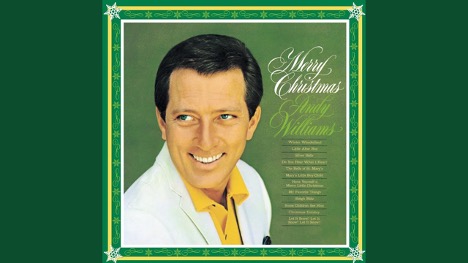
He was eight years old.
It was also song number eight on his dad’s 8-track. His dad played it repeatedly in his silver Chevy Monte Carlo up and down the San Diego Freeway during the holiday season. It was the song “My Favorite Things” sung by Andy Williams. Though it was famously sung by Julie Andrews in The Sound of Music, he only loved one version: Andy Williams’. He sung the song in the back seat of the car every time it came on. In fact, it made him fall in love with music.
Before Christmas, he was staying at his grandparents’ house (whom he affectionally called Nana and Poppy) on a weekend. His grandmother was a singer and a pianist. She would play Christmas carols on the piano every Christmas Eve, and she practiced leading up to the family get-together.
That weekend he asked her if she could play My Favorite Things on the piano so he could sing along. He sang the song, accompanied by his grandmother and her piano, for hours until they had it down perfectly. He was so happy for this time with his Nana. He gave her a big hug and told her he loved her after they were done. His Poppy was secretly watching from the other room with a big smile on his face.
A few weeks later the entire family attended his grandparents’ Christmas Eve dinner. After dinner the family sat around in the living room singing Christmas carols, with his Nana on the piano. At one point, his Poppy whispered in his ear, “It’s your turn to sing My Favorite Things.” His face turned red. He said no at first because he was so scared to sing in front of the entire family, but his Nana and Poppy convinced him to make a memory!
He started the song while his heart pounded out of his chest. He was so nervous as all eyes were on him, but he arrived at the lyrics…
“When the dog bites,
When the bee stings,
When I’m feeling sad,
I simply remember my favorite things, And then I don’t feel so bad.”
His voice became stronger. He saw the joy in everyone’s eyes, and it stirred within him hope and peace. He had shared a memory with his family, and it was a memory he shared with his children as they continued the tradition of singing the song every Christmas Eve.
This memory became the treasure under his tree that Christmas and all the Christmases to come.
The Only Truly Valuable Currency in Life Is Relationships
Throughout his life he loved stories of the holiday season. He realized the constant message in these stories was that it is not the wealth we acquire or the personal glory that matters. What really matters are the relationships and the memories we share with the people we love. What is truly valuable is those memories like those Christmas Eves at his grandparents’ house putting on a family musical revue after dinner.
It is those experiences with our loved ones that carry us through the difficult times in life. Their warmth and comfort give us hope!
- Happy Days are together!
He used to play many board games with his best friend and sister growing up (pre PlayStation or Nintendo Switch!). One game was a Happy Days game based upon the popular TV show from the 1970s. The object of the game was to acquire as many “Cool Points” as possible to be like the Fonz or you were designated as the Potsie or Ralph Malph of the day. The group played the game many times, and they always joked about who had the most “Cool Points.”
One year Happy Days aired a Christmas Special (“Guess Who’s Coming to Christmas”) and delivered a message that resonated with him his entire life. In that special, the Fonz did not have all the Cool Points despite what he said.
Potsie, Ralph and Richie met at Arnold’s Diner to exchange gifts. They noticed the Fonz was excited for Christmas. The Fonz boasted about a large family holiday party he was attending.
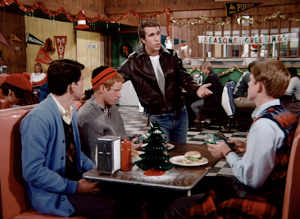
However, it was far from the truth! On Christmas Eve, Richie finds the Fonz sitting alone on Christmas Eve, eating ravioli from a can. It was clear Fonzie did not have anywhere else to go on Christmas Eve. He was alone.
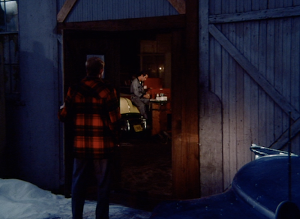
Richie convinces the Fonz to be with Richie’s family, so he was not alone on Christmas. This offered the Fonz the chance to share a memory with his friend. Once again, he remembered what those shared memories meant as he sat on the stairs and looked again at the empty living room.
- ”Why, it’s old Fezziwig!”[i]
He knew Happy Days are not just with family and friends in leather jackets! It is with the people we see every day, including at work.
Sometimes, we are reminded that the quest for wealth is a lonely road without sharing memories with others, as shown in the holiday classic a Christmas Carol. The Ghost of Christmas Past takes Scrooge on a journey to remind him that having all the money in the world without shared memories is a bankrupt and empty life.
Scrooge is eventually taken to a joyful memory after a somber moment at his school where he is left alone for Christmas. It is the place where he worked as an apprentice in his youth. In fact, grumpy Scrooge is delighted to see his old boss, Fezziwig, and cries out ”Why, it’s old Fezziwig! Bless his heart; it’s Fezziwig alive again!”[ii]
At that moment, he is reminded of the kind person in Fezziwig and the joy he felt in sharing a holiday memory with the people he worked with, rather than his vacant pathway to wealth.
- You do not have to be rich and famous to have a Wonderful Life!
Every holiday season he turns it on. He knows he is going to cry even though he has seen It’s a Wonderful Life more than a hundred times. However, he watches it (especially that one scene on the bridge) to remind himself to be grateful for the life he has.
You know the scene.
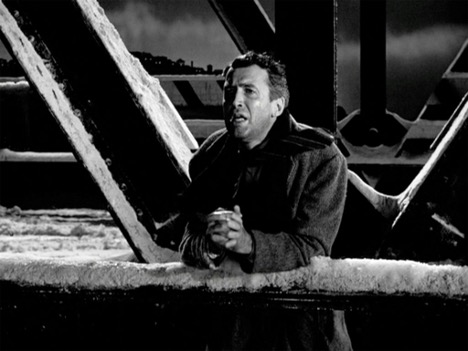
George Bailey goes back to the bridge where he contemplated taking his life because he was down on his luck. His expectations had not met his reality. His dreams throughout the story were interrupted because he chose to be a true friend, son, brother, father, and husband.
He realized after Clarence took away his existence that he did have a wonderful life: a life worth living. He was rich with meaningful friendships, the love from his family, and the memories he shared with each person who traveled with him through life. This awakening led him to passionately pray as tears rolled down his eyes:
“Clarence! Clarence! Help me, Clarence. Get me back. Get me back. I don’t care what happens to me. Only get me back to my wife and kids.
Help me, Clarence, please! Please! I want to live again!I want to live again. I want to live again. Please, God, let me live again.”
George got his life back and the town came to the rescue to pay it forward for all the good he gave to them. Famously, his brother Harry toasts, “To my big brother, George. The richest man in town.”
George opens a copy of Tom Sawyer left by Clarence and reads the inscription:
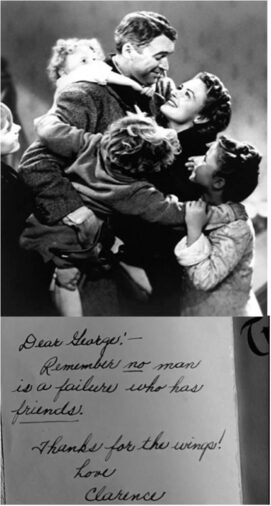
Why is no person a failure who has friends? Because relationships and memories are everything! It is really all that matters. Yes, financial security is important, but wealth is empty without experiences with others.
Share the Good News
A close friend of his once told him (and I paraphrase):
“You can go to a cocktail party and share all your problems with people. They will listen for a few minutes and then turn away looking for someone else to talk to.”
Why is that? It is not because they lack empathy. It is because people want to hear hope. People long for the “Good News.” They want to know there is a road to happiness and triumph.
Plaintiff’s attorneys’ sole mission at trial is to anger the jury. They tell the jury there is no way their client can be happy ever again, enjoy life, or even share a memory. They essentially send the message that their client’s life is over, and the only remedy is money– a very large amount of money.
What does the defense bar say in response? “Be reasonable,” “It’s not our fault,” or NOTHING!
This is wrong! Defense lawyers need to be human. They need to tell the jury why and how there is a road to happiness for the plaintiff.
A defense lawyer should be spreading the good news and explaining how the plaintiff can live a fulfilling life by continuing to share the memories with their friends and family, by highlighting the things they can still do, for example:
- Enjoying a concert
- Going on vacation
- Camping
- Relaxing on the beach
- Spending time with friends and family
It does not take an exorbitant amount of money to create a joyful memory, or build a beautiful life. More often than not, it is the little things like singing a song while your grandmother plays piano.
Be the messenger of the good news at the cocktail party! Deliver a message of hope that life can be wonderful!
When the Bee Stings
As he looked away from the ghosts of holiday past, he could hear the sirens of the ambulance. It was no longer the jingle of bells or the melodies of holiday classics. He could only hear the voices of fear in his head because of the loss of his speech and the burning pain that traveled down his arm. These fears led to questions about the future:
- How was he going to take care of his family?
- What kind of life was ahead?
- Would he survive this day without telling his family how much he loved them?
- Was he ever going to be able to sing again?
To quote the band U2, he was “…looking for a miracle… the kind science can’t explain.”[i]
So, he prayed to God to bring his life back and to survive this day. At that moment a cherished memory returned. He could not sing the words. Instead, he sang in his head the song he sang many times on Christmas Eve with his grandparents … My Favorite Things! He repeated the lyrics in his mind over and over again as tears rolled down his cheeks:
“When the dog bites,
When the bee stings,
When I’m feeling sad,
I simply remember my favorite things
And then I don’t feel so bad.”[ii]
The song kept playing in his head as he was rolled on a stretcher into the ambulance. The paramedic spoke to him and said how are you feeling, and finally coherent words came out of his mouth. He said, “I don’t feel so bad.”[iii]
His speech slowly returned. No one could explain what happened, but he knew in his heart the reason: a prayer and a song, all based upon a beautiful memory.
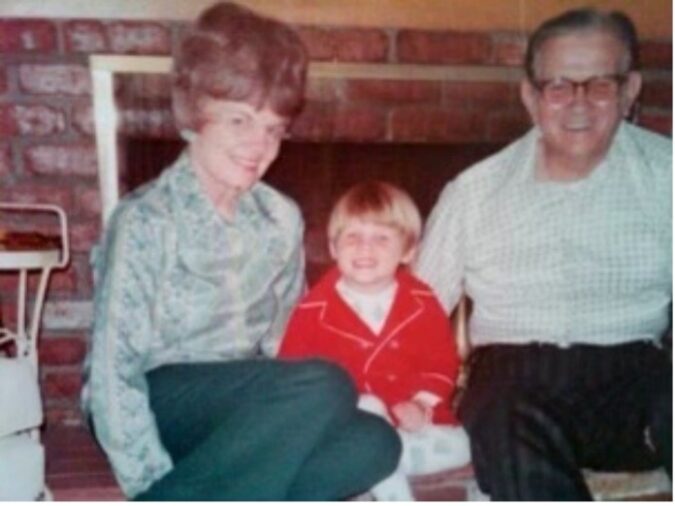
Your Song, Your Memory Saved My Life on A January Day
Thank you, Nana and Poppy, for the love you gave me, especially every year on Christmas Eve! Your song and memory saved my life!
Love you, and I know you are watching over me from heaven!
Ricky
Keep Reading
Sources
[1] Andy Williams, “Have Yourself a Merry Little Christmas” (Columbia Records, 1965).
[1] Rodgers & Hammerstein, “My Favorite Things,” (Williamson Music 1959).
[1] “Guess Who’s Coming to Christmas,” Happy Days (1974).
[1] Id.
[1] Charles Dickens, A Christmas Carol in Prose: Being a Ghost Story of Christmas (1843).
[1] Id.
[1] It’s a Wonderful Life, Liberty Films (1946-7).
[1] Id.
[1] Id.
[1] U2, “Your Song Saved My Life (from Sing 2)” (Island 2021).
[1] Supra note ii.
[1] Id.

 Author: Richard Somes
Author: Richard Somes
 Editor: Ashley Paige Fetyko
Editor: Ashley Paige Fetyko
 Cannabis Workers Allege Quota to Trim 4 Pounds a Day Violates the California Labor Code
Cannabis Workers Allege Quota to Trim 4 Pounds a Day Violates the California Labor Code
 The Ninth Circuit Reminds Us: Every Word Matters
The Ninth Circuit Reminds Us: Every Word Matters
 NO WAY, PRO SE! The Consequences of Abusing the Judicial System as a Pro Se Litigant in Colorado
NO WAY, PRO SE! The Consequences of Abusing the Judicial System as a Pro Se Litigant in Colorado
 Victim of Financial Mismanagement or Unlawful Retaliation? New Jersey City University Program Founder Claims School Retaliated After Reporting Alleged Sexual Harassment
Victim of Financial Mismanagement or Unlawful Retaliation? New Jersey City University Program Founder Claims School Retaliated After Reporting Alleged Sexual Harassment
 “Real Housewives” Gets a Reality Check
“Real Housewives” Gets a Reality Check
 Missing a Chapter: Insufficiency of Expert Deposition Testimony in Medical Malpractice Litigation
Missing a Chapter: Insufficiency of Expert Deposition Testimony in Medical Malpractice Litigation
 Crash Course: Why Summary Judgment Misses the Mark in Illinois Multi-Cause Limousine Crash Collision
Crash Course: Why Summary Judgment Misses the Mark in Illinois Multi-Cause Limousine Crash Collision
 Bitter Truths: Lead, Cadmium, and Defective Pleadings in California Chocolate Class Action
Bitter Truths: Lead, Cadmium, and Defective Pleadings in California Chocolate Class Action
 The Law of Unintended Consequences: Including Insurance Brokers in Litigation Strategy Communication May Waive the Attorney-Client Privilege
The Law of Unintended Consequences: Including Insurance Brokers in Litigation Strategy Communication May Waive the Attorney-Client Privilege